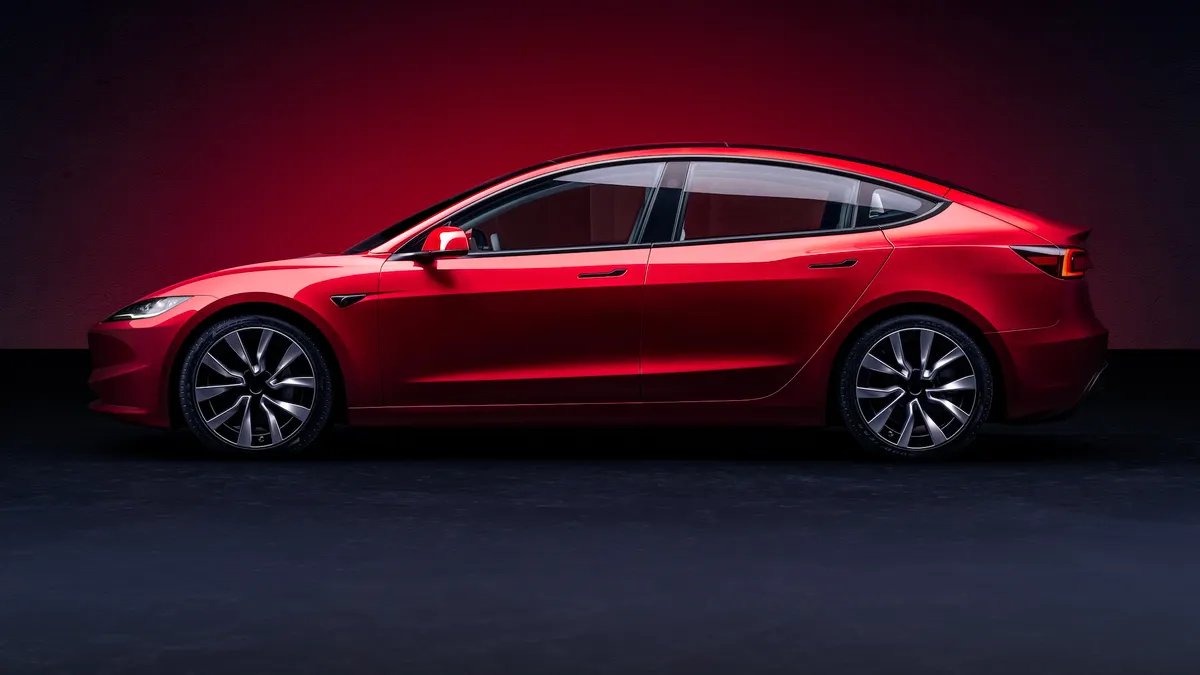Editor's note: This story is part of the WardsAuto digital archive, which may include content that was first published in print, or in different web layouts.
BRUSSELS – A top Volkswagen official refuses to acknowledge to a consumer organization that the automaker had acted illegally in the Dieselgate scandal in Europe.
Speaking this week at a European Consumer Organization conference in Brussels, Imelda Wander-Lamé, Volkswagen’s director of group aftersales, says, “We are truly sorry for this inconvenience and loss of trust that we caused to our customers.”
But when pressed by one participant after another, Wander-Lamé refuses to admit any illegality by VW in installing so-called defeat devices – software designed to produce favorable emissions readings – in VW and Audi cars with certain diesel engines.
“In the (European Union) we do comply with the legislation in place,” she tells conferees.
The reaction prompted a furious tweet from Monique Goyens, the consumer group’s director general: “Rep of VW group just cannot admit they acted illegally. This is unbelievable and will not restore trust.”
Secretary Gerneral Erik Jonnaert of ACEA, the European automakers’ group, secretary general, echoed Wander-Lamé in response to a claim by Luisa Crisigiovanni, secretary general of Altroconsumo, the Italian consumer association, that the automaker had broken the law by not providing promised information.
“There is still a question here if it’s an infringement or not, but I don’t dismiss the concern,” he says.
While Jonnaert acknowledges “the use of defeat devices is prohibited and the legislation is very clear on this,” he notes it “is always possible in the legislation to get an exemption.”
For example, he says, granting exemptions would be “justified” to stop vehicle damage or ensure its safe operation. But, he added, “that frankly is not defined by law at present.”
Critics Not Buying Automakers' Legal Arguments
Speaking just before Jonnaert, Lowri Evans, director general of DG GROW, the directorate general for internal market, industry, entrepreneurship and small and medium-sized enterprises (SMEs) at the European Commission, the EU’s executive branch, insists defeat devices are illegal.
“There is sufficient clarity in the law, even as it stands now before the type-approval proposal, that defeat devices are illegal,” Evans says.
Type approval demands that a product meet regulatory, technical and safety requirements before it can be sold in a particular country.
Bart Martens, an aide to European Paliament member Kathleen van Brempt, who chairs a committee of inquiry into emissions measurements in the automotive sector, says manufacturers have a “clear obligation” to disclose defeat strategies.
Martens also argues the EU’s current Euro 5 and 6 emissions standards require manufacturers to design and equip cars to have low emissions under normal conditions of use. As for defeat devices, he says, “It’s not because something is legal that it’s legitimate.”
Jonnaert countered that European law does not define “normal driving behavior” and was backed by Dirk Bosteels, executive director of the nonprofit, industry-supported Association for Emissions Control by Catalyst, who says regulating emissions is a complex issue affected by factors such as driving, weather or a vehicle’s load.
Evans and Jonnaert cite the switch to real-driving emissions tests using portable emissions measurement devices rather than laboratory testing.
“It may not be perfect but will have a huge impact on the reality of” nitrogen-oxide emissions, the main pollutant affected by the defeat devices, Evans says.
But, Jonnaert cautions, “The outcome will never correspond with the emissions of each vehicle that a driver will drive.”
Vera Jourova, the EU’s Commissioner for Justice, Consumers and Gender Equality, tells the conference Volkswagen had broken several European laws. But she notes it is up to individual EU member states to take legal action against the automaker, not the EC.
Jourová welcomes the €5 million ($5.6 million) fine the Italian Competition Authority assessed against VW and calls on other EU member states to act.
Jourová and Elzbieta Bieńkowska, EU Commissioner for Internal Market, Industry, Entrepreneurship and SME’s, both criticize VW for failing to pay compensation to European consumers, as it has done for U.S. consumers.
Bieńkowska says she is frustrated “not only at what happened but what has not happened.” She notes 8 million consumers still are waiting for remedial action on their cars.

















